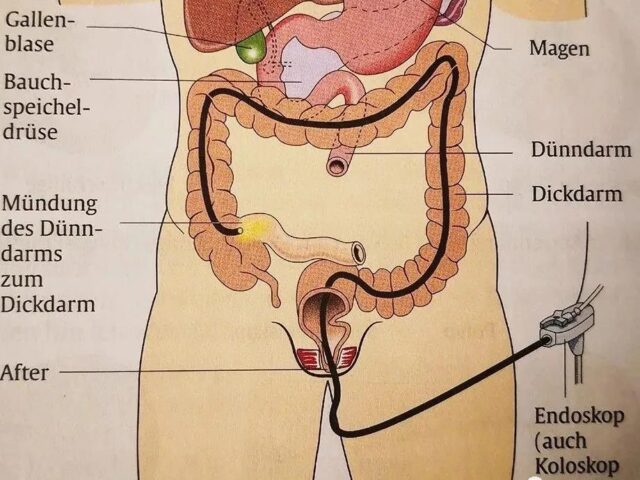2021 USPSTF guidelines recommend colorectal cancer screening from age 45
- Normal Liver Cells Found to Promote Cancer Metastasis to the Liver
- Nearly 80% Complete Remission: Breakthrough in ADC Anti-Tumor Treatment
- Vaccination Against Common Diseases May Prevent Dementia!
- New Alzheimer’s Disease (AD) Diagnosis and Staging Criteria
- Breakthrough in Alzheimer’s Disease: New Nasal Spray Halts Cognitive Decline by Targeting Toxic Protein
- Can the Tap Water at the Paris Olympics be Drunk Directly?
JAMA: 2021 USPSTF guidelines recommend colorectal cancer screening from age 45
2021 USPSTF guidelines recommend colorectal cancer screening from age 45. 85% of bowel cancers are found in the middle and advanced stages, and the 5-year comprehensive survival rate is less than 40%;
However, colorectal cancer is the easiest cancer to prevent, with an early cure rate of greater than 90%;
Doctors have discovered that most bowel cancers evolve from bowel polyps, and colonoscopy is the only weapon for early detection of bowel cancer.
A colonoscopy in time can effectively prevent tragedies from happening.
The latest revised guideline in the United States is 45 years old; however, more endoscopy doctors recommend before 40 years old.
So, when is the appropriate time for the first colonoscopy?
Several authoritative studies in June 2021 gave the answer.

JAMA: The latest US guidelines recommend colorectal cancer screening at the age of 45
The United States Preventive Services Task Force (USPSTF) recently released the latest (2021) colorectal cancer screening recommendations in JAMA:
Colorectal cancer screening for adults aged 50-75 has significant net benefits;
There is a certain net benefit from colorectal cancer screening for adults aged 45-49;
The net benefit of colon cancer screening for adults aged 76-85 who have previously been screened is small, and adults who have never been screened for colorectal cancer are more likely to benefit.
In 2016, the USPSTF recommended that all people aged 50-75 should be screened for colorectal cancer, and in the 2021 recommendation, the starting age for colorectal cancer screening was advanced to 45 years old.
① It is recommended that all adults between 50 and 75 years old be screened for colorectal cancer (level A recommendation);
② It is recommended to carry out colorectal cancer screening for adults aged 45 to 49 years (grade B recommendation);
③ It is recommended that clinicians selectively provide colorectal cancer screening for adults between 76 and 85 years old. There is evidence that the net benefit of screening all people in this age group is very small. The overall health status of the patient and the previous screening should be considered. Check history and preferences (C-level recommendation);
④ Recommended screening strategies include: fecal occult blood/fecal immunochemical testing every year, colon CT or flexible sigmoidoscopy every 5 years, colonoscopy every 10 years, etc.
50,000 data: bowel cancer screening should start at the age of 45
The results of a meta-analysis published on Gastroenterology summarized the data of 17 studies (a total of more than 50,000 subjects with an average risk) and found that early-onset advanced colorectal neoplasms in people aged 45-49 The prevalence of colorectal neoplasia is similar to that of people aged 50-59 (3.6% vs. 4.2%), suggesting that screening in people aged 45-49 may also effectively reduce the risk of colorectal cancer.
① Include 17 studies (involving 51,811 subjects with average risk from 4 continents) for meta-analysis;
② The overall prevalence rate of early-onset colorectal neoplasms (EAO-CRN) is 13.7%, and the overall prevalence rate of early-onset advanced colorectal neoplasms (EAO-aCRN) is 2.2%;
③ The prevalence of EAO-CRN in men is significantly higher than that in women. The prevalence of EAO-CRN in the United States is the highest, followed by Europe and East Asia, and the Middle East is the lowest;
④ The prevalence of EAO-CRN in people aged 45-49 and 50-59 are 17.8% and 24.8%, respectively;
⑤ The prevalence of EAO-aCRN in people aged 45-49 and 50-59 were 3.6% and 4.2%, respectively.

Lancet Sub-Journal: Large-scale screening can reduce the incidence and mortality of bowel cancer
A population-based study published in The Lancet Oncology collected data on the incidence, mortality, and staging of colorectal cancer in 21 European countries since 2000, and found that large-scale screening programs can effectively reduce colorectal cancer The incidence and mortality of cancer, and promote the early diagnosis of colorectal cancer.
① In the earlier popularization of colorectal cancer screening items (including colonoscopy screening and stool testing), the incidence of colorectal cancer was on a downward trend, and the mortality rate of colorectal cancer decreased the most, and the proportion of stage I increased, and the proportion of stage IV decreased ;
② The incidence of colorectal cancer in countries that started to implement screening programs during the survey period remained stable or increased to the year when the screening started;
③ Among them, in some countries that have quickly completed high screening coverage, the incidence of colorectal cancer first increased, and then decreased after the beginning of the screening program;
④ In countries where there is no large-scale screening program, the incidence of colorectal cancer is increasing year by year, and most of the stage distributions have not changed significantly.
(source:internet, reference only)
Disclaimer of medicaltrend.org
Important Note: The information provided is for informational purposes only and should not be considered as medical advice.



